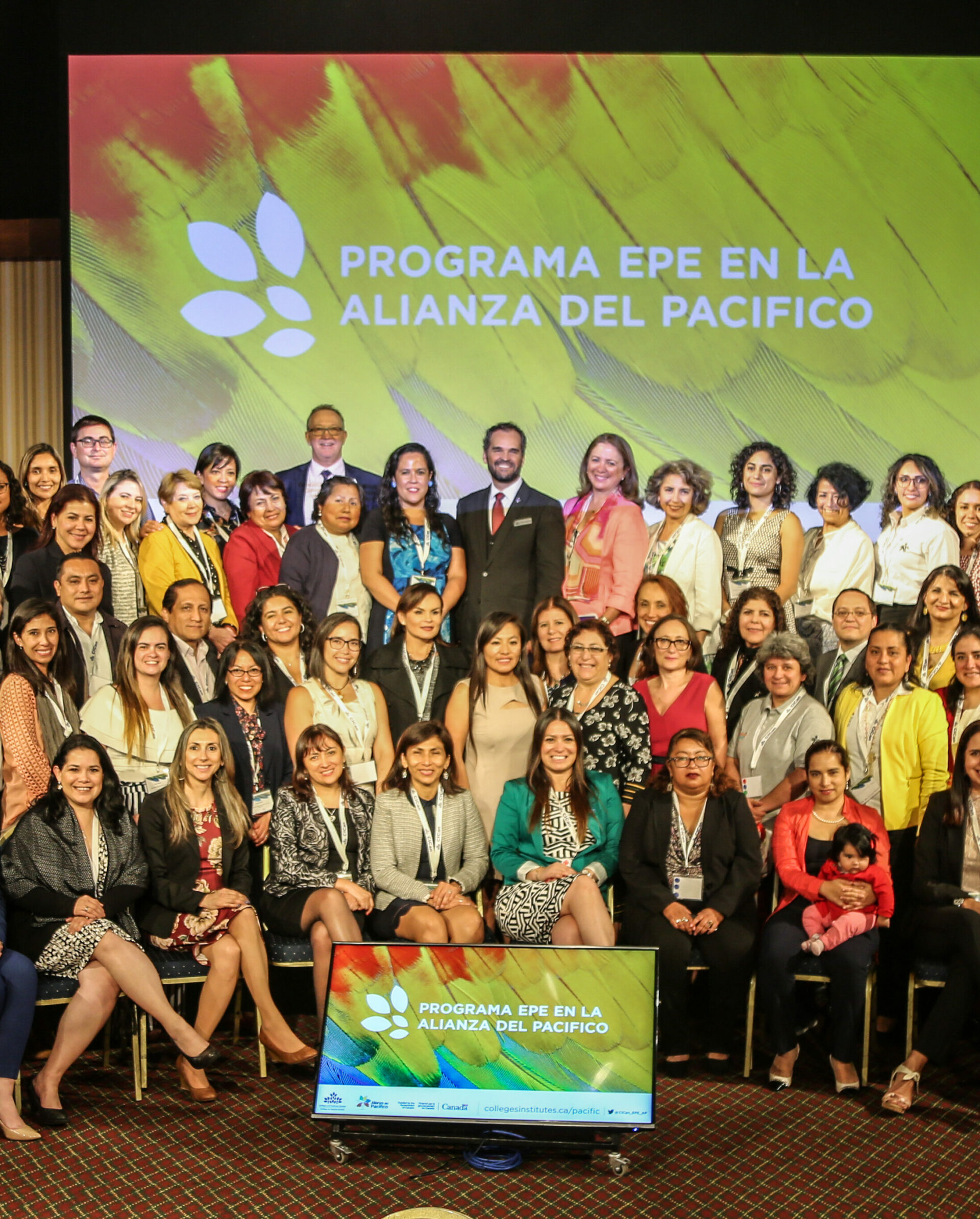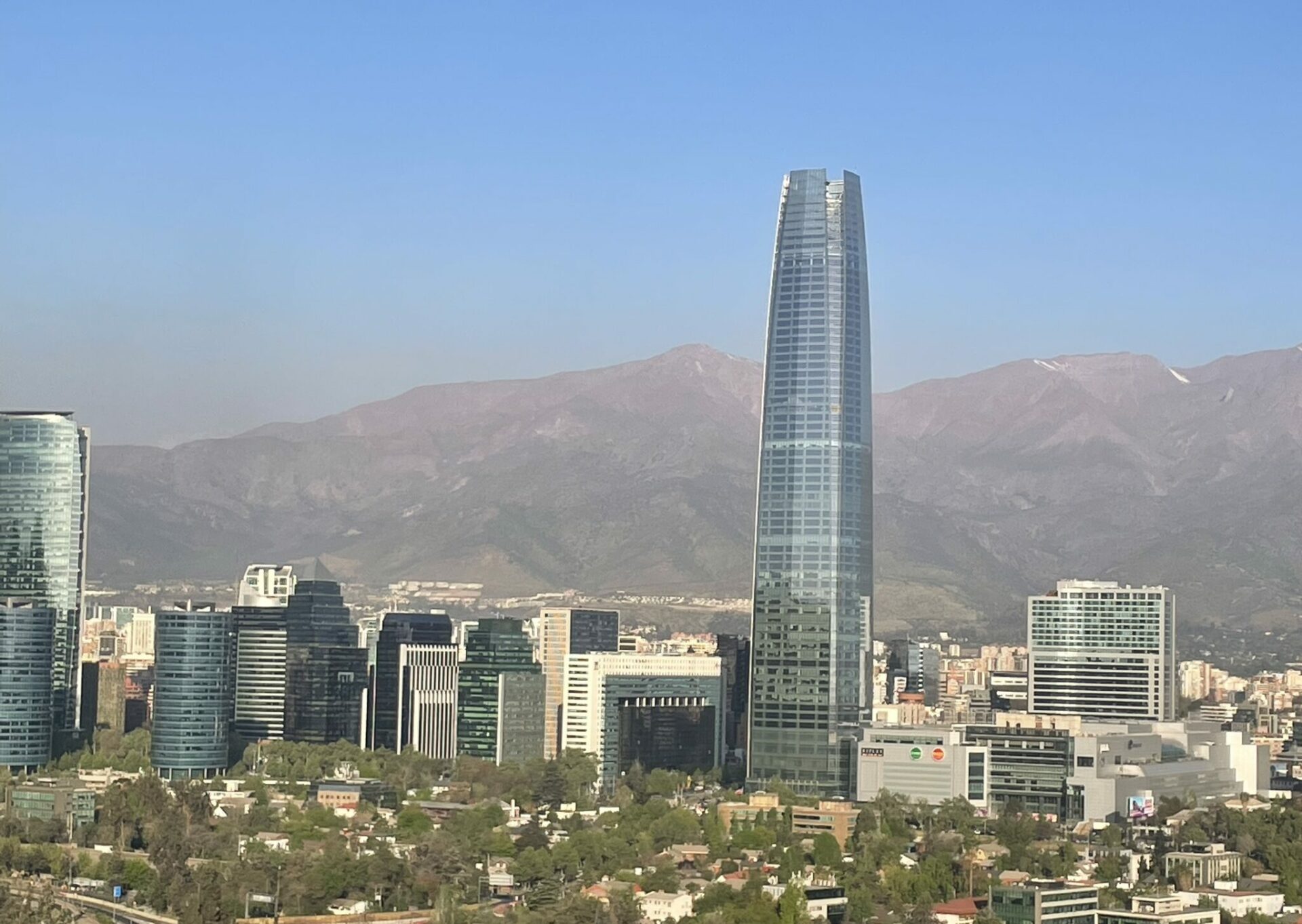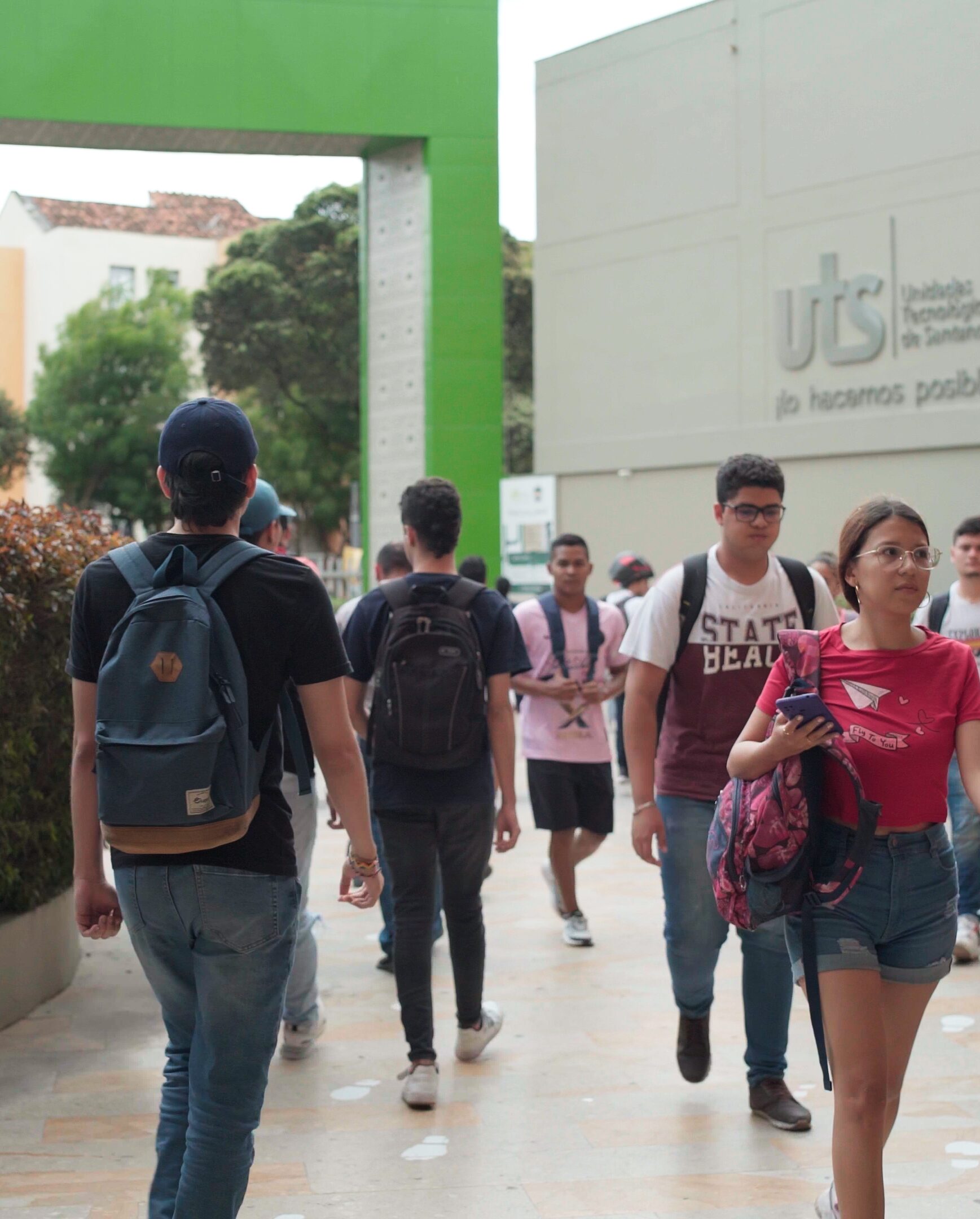International Forums for the exchange of best practices
One of the main pillars of the PA-EFE Program was the strengthening of regional dialogue among the four Pacific Alliance countries regarding public policies and the identification of policies and best practices, which were then analyzed and published in bespoke reports. To achieve this objective, CICan organized five international forums that brought together more than 3,006 leaders and managers from the public and private sectors and civil society, specifically from communities living in the territories where extractive sector companies operate, from Chile, Colombia, Mexico and Peru.
The forums addressed priority challenges to strengthen the governance of the extractive sector :
- Forum on Gender Equality in the Extractive Sector (2019, in Santiago de Chile)
- Forum on Indigenous Communities, Education for Employment, and Relations with the Extractive Sector (2019, in Saskatoon, Canada)
- Intersectoral Forum for Technical and Vocational Education and Training (TVET) (2020, online)
- Intersectoral Forum on Environmental Sustainability in the Pacific Alliance and Canada (2021, online)
- PA-EFE Program’s Capitalization Forum (2023, The event was carried out in a hybrid manner, with a face-to-face event in Mexico City that was transmitted online).
Gender Equality Forum
The Forum on Gender Equality in the Extractive Sector was held on March 21 and 22, 2019 in Santiago, Chile. This was the first of five thematic forums organized by CICan as part of the PA-EFE Program; it brought together 132 participants (108 women and 24 men) from the four PA countries and Canada. During the event, 14 policies and best practices were shared, as well as recommendations for implementing gender equality policies and programs.
The Forum addressed gender equality, women’s inclusion and participation in technical training, employment and leadership in the extractive sector. Participants had the rare opportunity to interact with their counterparts from other PA countries and Canada. Bringing together a diverse group of decision makers and experts in the field was also a unique opportunity to address not only the problems and challenges with regard to gender equality in the extractive sector, but also possible solutions.
The video is only available in Spanish

Indigenous Communities Forum
The second action for assessing the current situation in the PA countries was the Indigenous Communities Forum, held from November 4 to 6, 2019, in Saskatoon, SK, Canada. This event was in addition to the annual event on training and Indigenous communities organized by CICan.
Three main themes were covered:
- Issues and challenges in the three-way relationship between government, Indigenous communities and companies;
- Best practices and lessons learned, with the aim of proposing alternatives for a positive dialogue that meets the needs of all parties, taking into account the different situations of men and women;
- Indigenous education, based on the experiences of the Canadian technological institutes, the representatives of the Indigenous populations, and of the PA countries.
The Forum provided an opportunity to learn about the situation of Indigenous peoples in PA countries and to exchange best practices from Canada and the PA countries.
The video is only available in Spanish

Testimonials
How was your participation in the Indigenous Education forum beneficial for you?
“I had the opportunity to participate in the Indigenous Education Forum in Saskatoon, Canada last year, and it was an enriching experience. Learning about the situation of Indigenous peoples in Canada was a totally new topic for me. My view is that we need to work on the issue. I think it is given a low priority in the four countries in general. Canada is quite advanced; they have many initiatives, they have inclusion policies, and that is very important. But I believe that Chile, Colombia, Mexico, and Peru need to make a greater effort to include these groups in our public policies.”
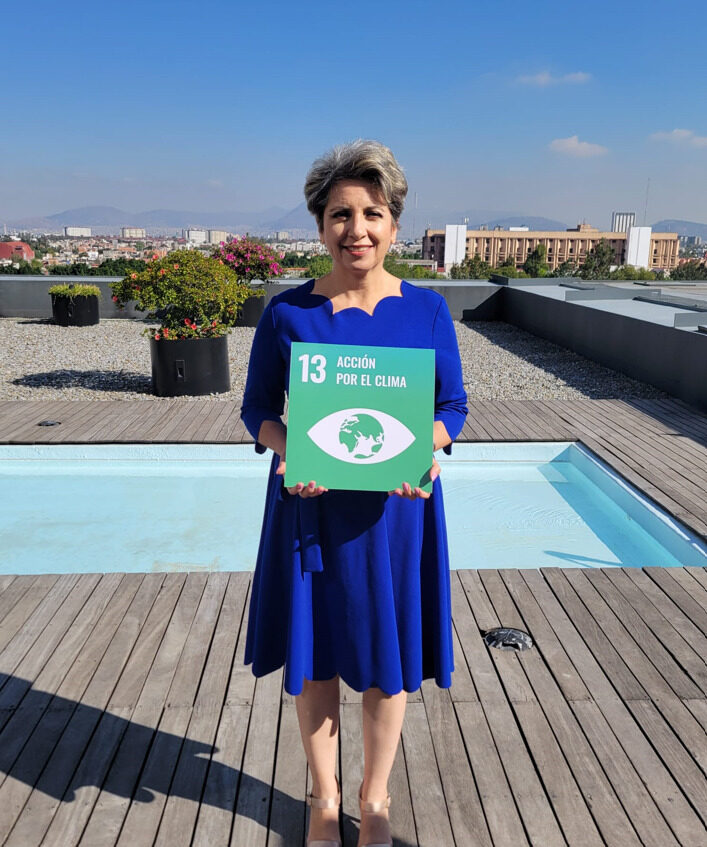
Intersectoral Forum on Technical and Vocational Education and Training (TVET)
The Program’s third forum focused on best practices, policies, priorities, and challenges in technical and vocational education and training (TVET) in the PA and Canada. It was held virtually, due to the COVID-19 pandemic. This allowed, however, for the forum to reach an audience of 3,368 people, which is a significant number that would not have been achieved in a face-to-face format. In total, four working days were held via webinar, on October 15, 22, and 29, and November 5, 2020.
The forum’s objective was to build the capacities of national and regional stakeholders to track the development and implementation of policies and best practices around the priority challenges facing TVET, within the framework of developing competent human resources in the extractive sector. The event therefore focused on three main themes:
- Inter-level coordination
- Connection between TVET and the productive sector
- Quality assurance
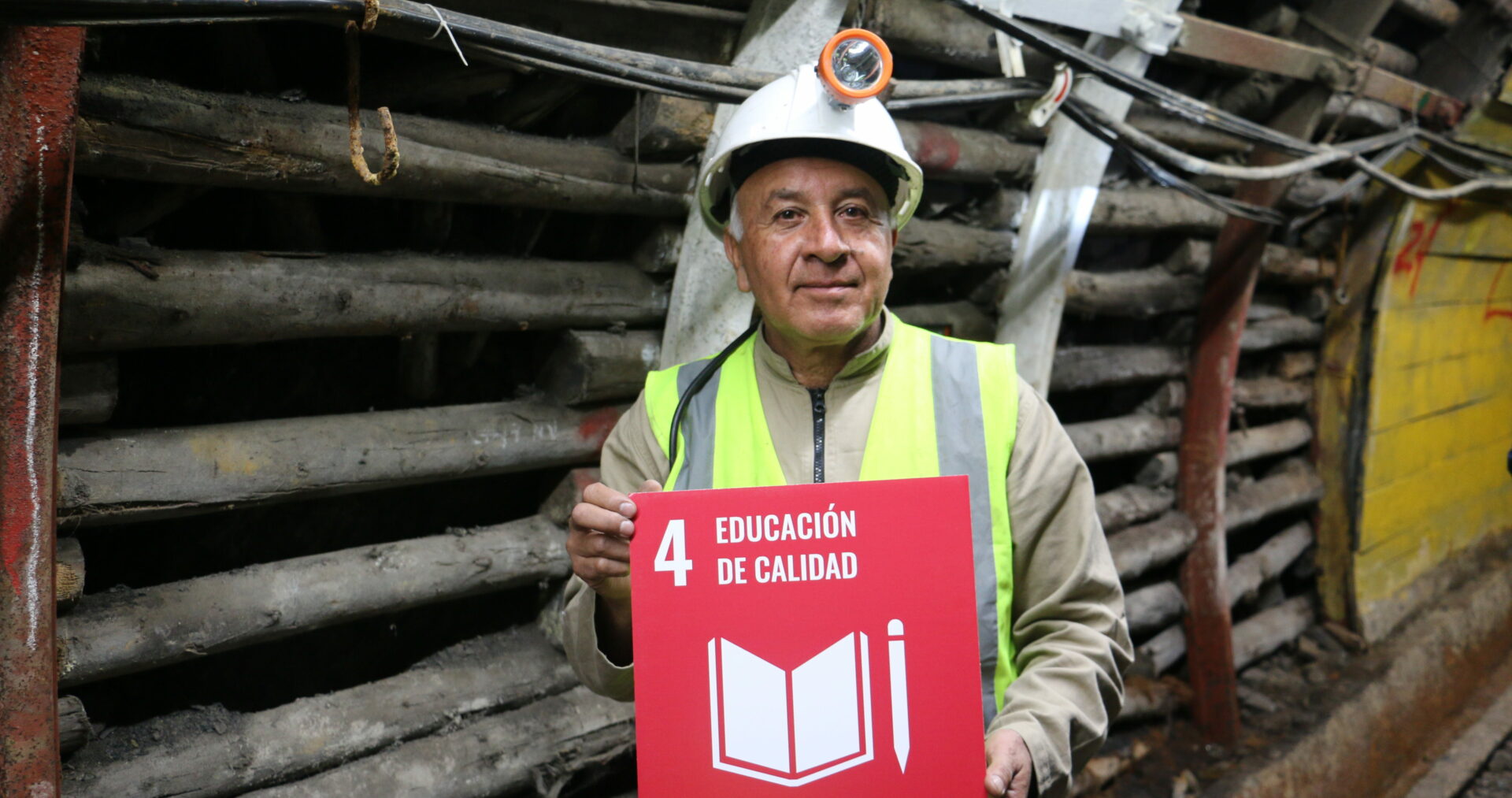
Environmental Sustainability Forum
Recognizing the need to strengthen the sustainable growth and development of the PA member countries, the Intersectoral Forum on Environmental Sustainability in the Pacific Alliance and Canada was held virtually on October 28 and November 4, 11, and 18, 2021. The purpose of the event was to build the capacities of national and regional stakeholders to track the development and implementation of environmental policies, best practices, and guidelines. More than 500 people took part in the event, which provided an opportunity for intersectoral and three-way dialogue between actors from the public and private sectors and civil society from the four PA countries and Canada to:
- identify challenges and priorities for environmental sustainability;
- reflect on environmental best practices in the PA;
- identify environmental best practices, policies, and guidelines in the PA and formulate suggestions or recommendations for their proper implementation and risk management; and
- identify key players working in environment and the extractive sector to contribute to the construction of a sustainable dialogue in the Program’s planned activities.

Capitalization Forum
The Program’s fifth and final thematic forum was held in a hybrid format, with a face-to-face event in Mexico City on January 24-26, 2023, which was also live-streamed. The event was focused on capitalization, and its main objective was to share experiences, approaches, and innovative tools developed as part of the institutional partnerships, in order to showcase the impact of the PA-EFE Program in the region and to promote the sustainability of the achievements and the Program’s best practices.
Members of the Program’s institutional partnerships, which implemented 16 projects, presented the themes and sub-themes of the forum through panels, mini-discussions, and sub-groups. The cross-cutting dimensions of gender equality and inclusion and environmental sustainability were also integrated within each session, reflecting their importance for the five countries involved in the Program. All panels were related to the four themes specified for the capitalization process:
- Collaboration and Alignment in the Pacific Alliance Region
- Academic Enhancement, Access and Success, and Employability
- Quality of Technical and Vocational Education and Training (TVET)
- Business and Community Services
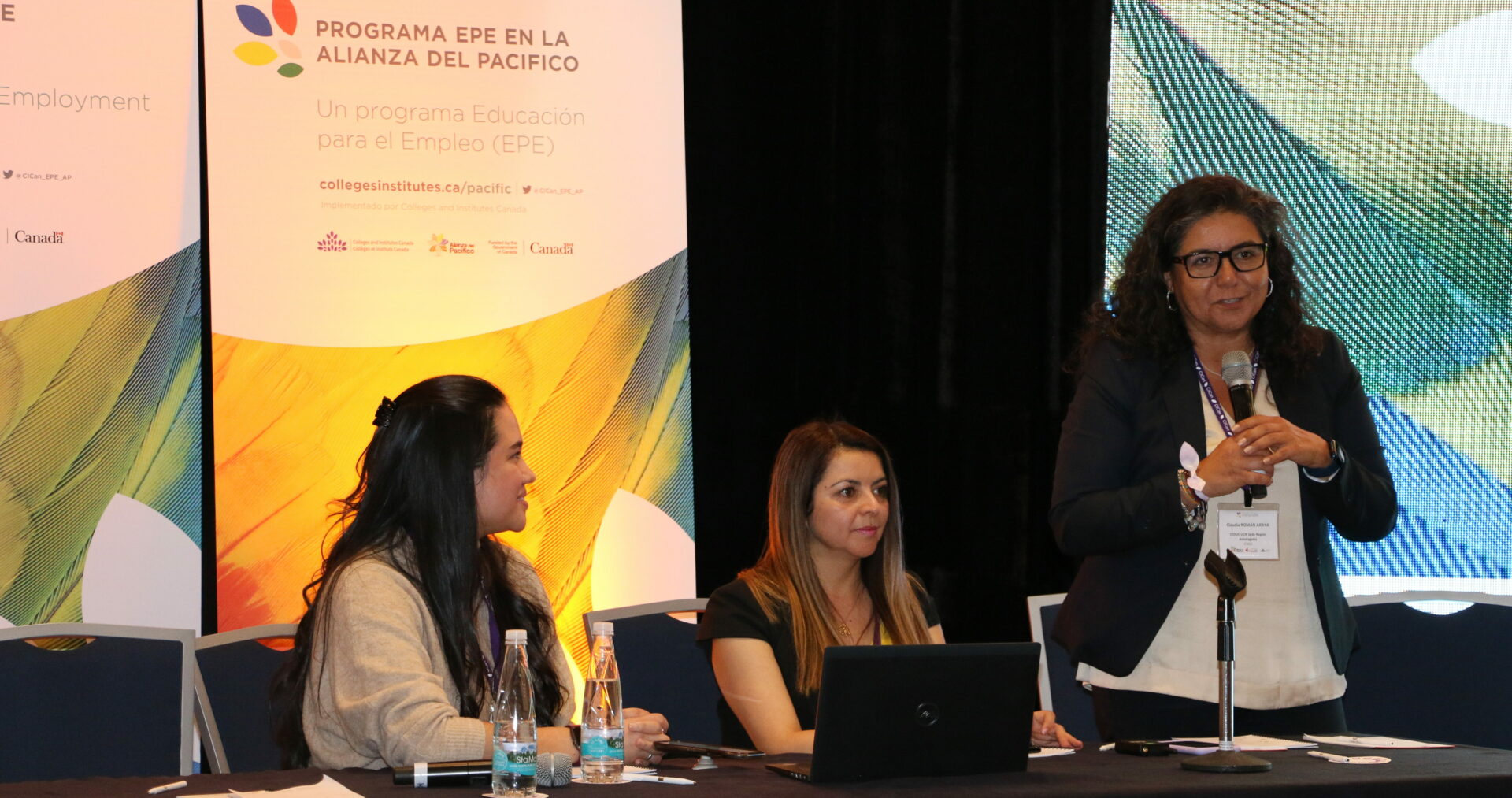
Documents And resources
Environmental sustainability
Gender equality and inclusion
Recording of the Forum on Gender Equality in the Extractive Sector
Collaboration and harmonization in the Pacific Alliance
Recording of the Forum on Indigenous Communities, Education for Employment, and Relations with the Extractive Sector
Collaboration and harmonization in the Pacific Alliance
Recording of the Intersectoral Forum for Technical and Vocational Education and Training (TVET)
Collaboration and harmonization in the Pacific Alliance
Recording of the PA-EFE Program’s Capitalization Forum
Collaboration and harmonization in the Pacific Alliance
Report from the Intersectoral Forum for Technical and Vocational Education and Training (TVET)
Collaboration and harmonization in the Pacific Alliance
Report of the Forum on Indigenous Communities, Education for Employment, and Relations with the Extractive Sector
Gender equality and inclusion
Report on the Forum on Gender Equality in the Extractive Sector
Environmental sustainability

